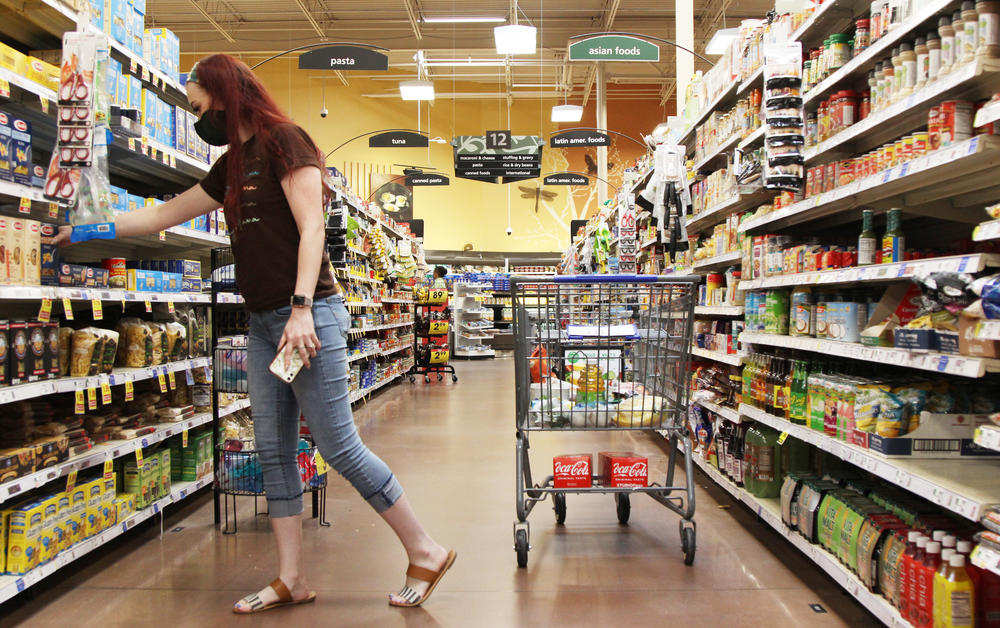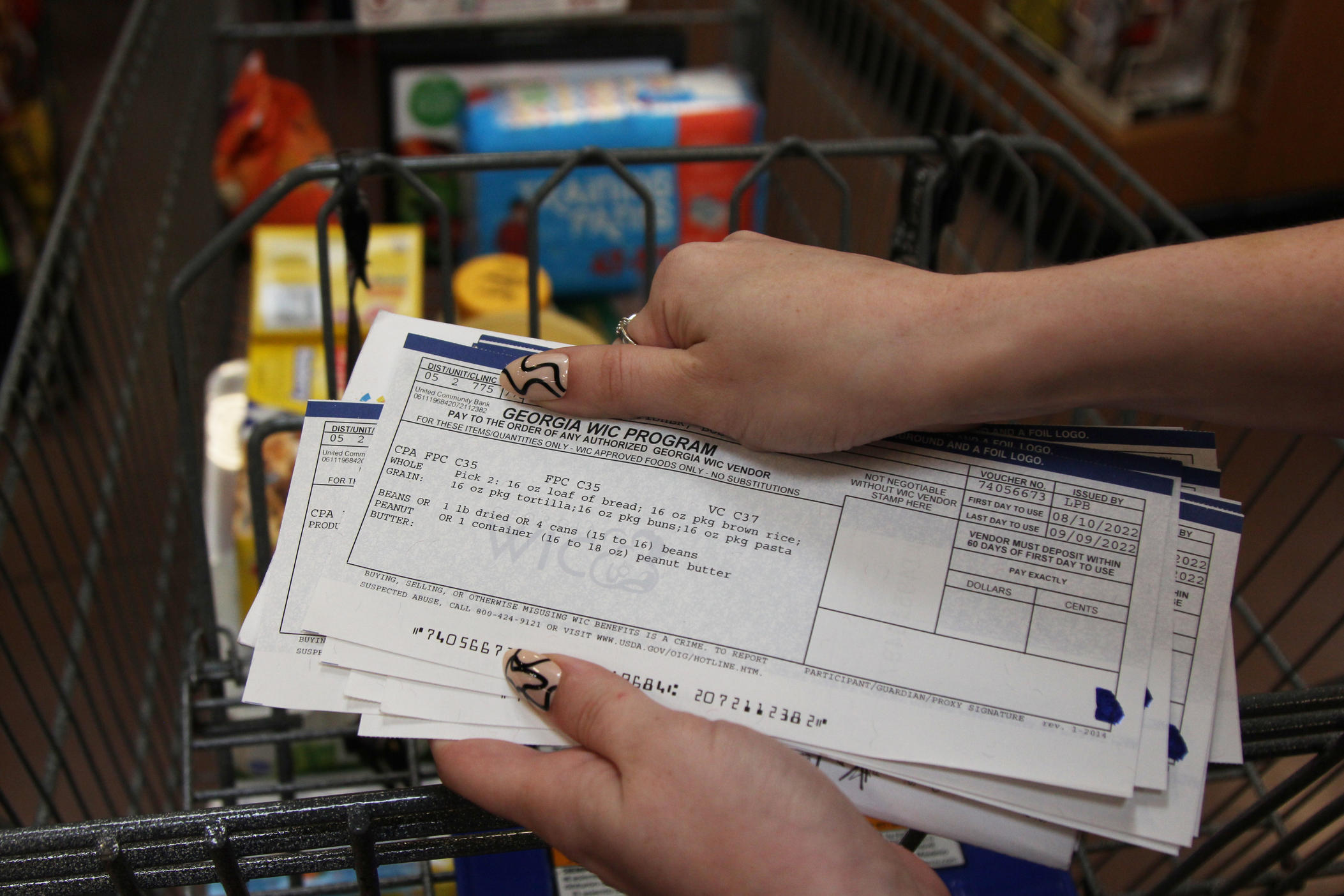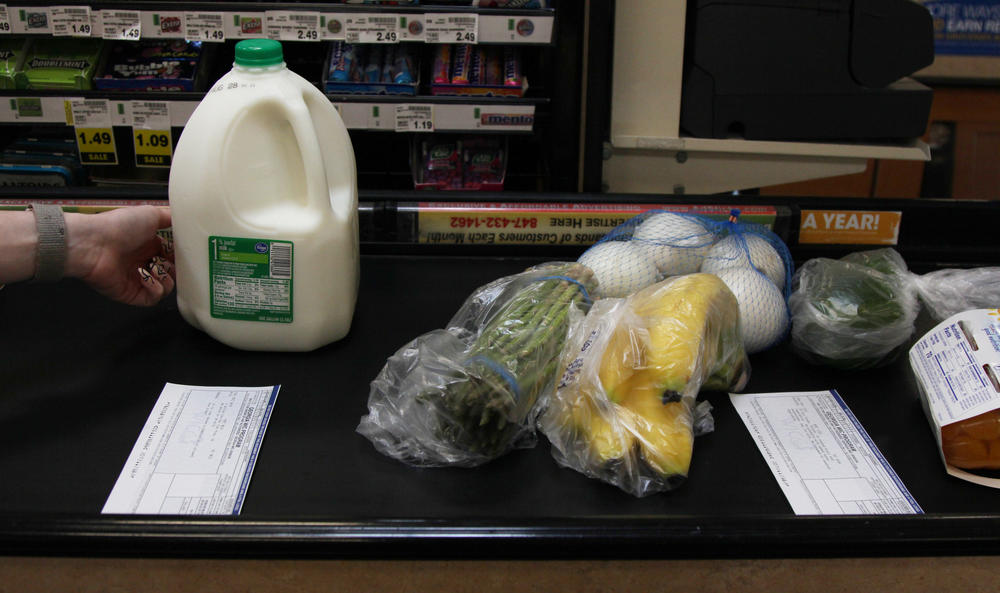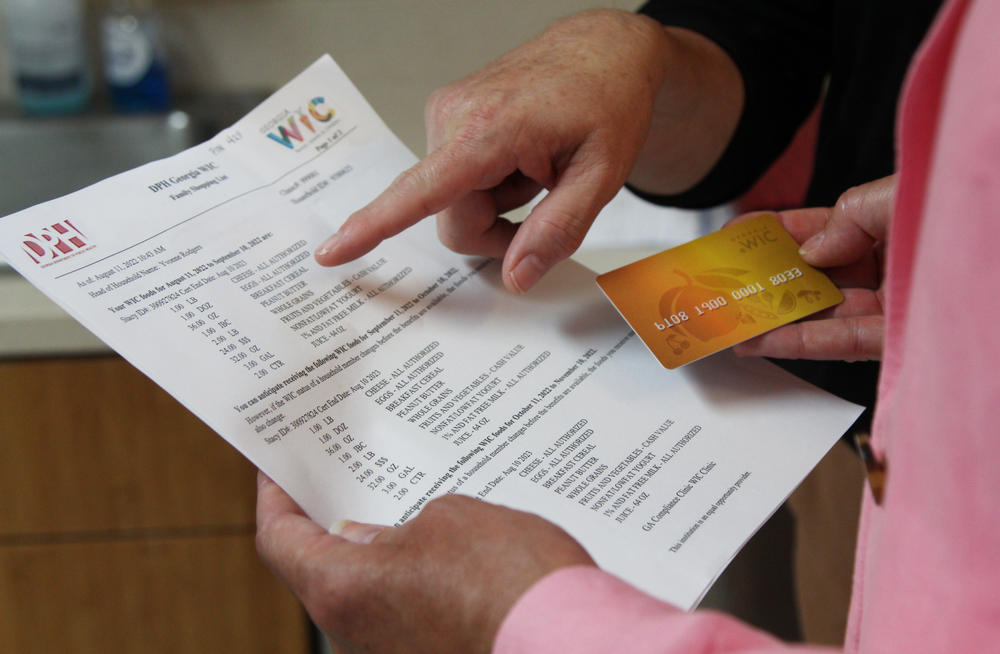
Caption
Julia Adele Callahan reaches for a box of pasta at a grocery store in Macon, Georgia, on August 15, 2022. Callahan and her two kids get WIC benefits every month that help pay for essential foods, like baby formula, whole grains, dairy and protein.
Credit: Sofi Gratas / GPB News




